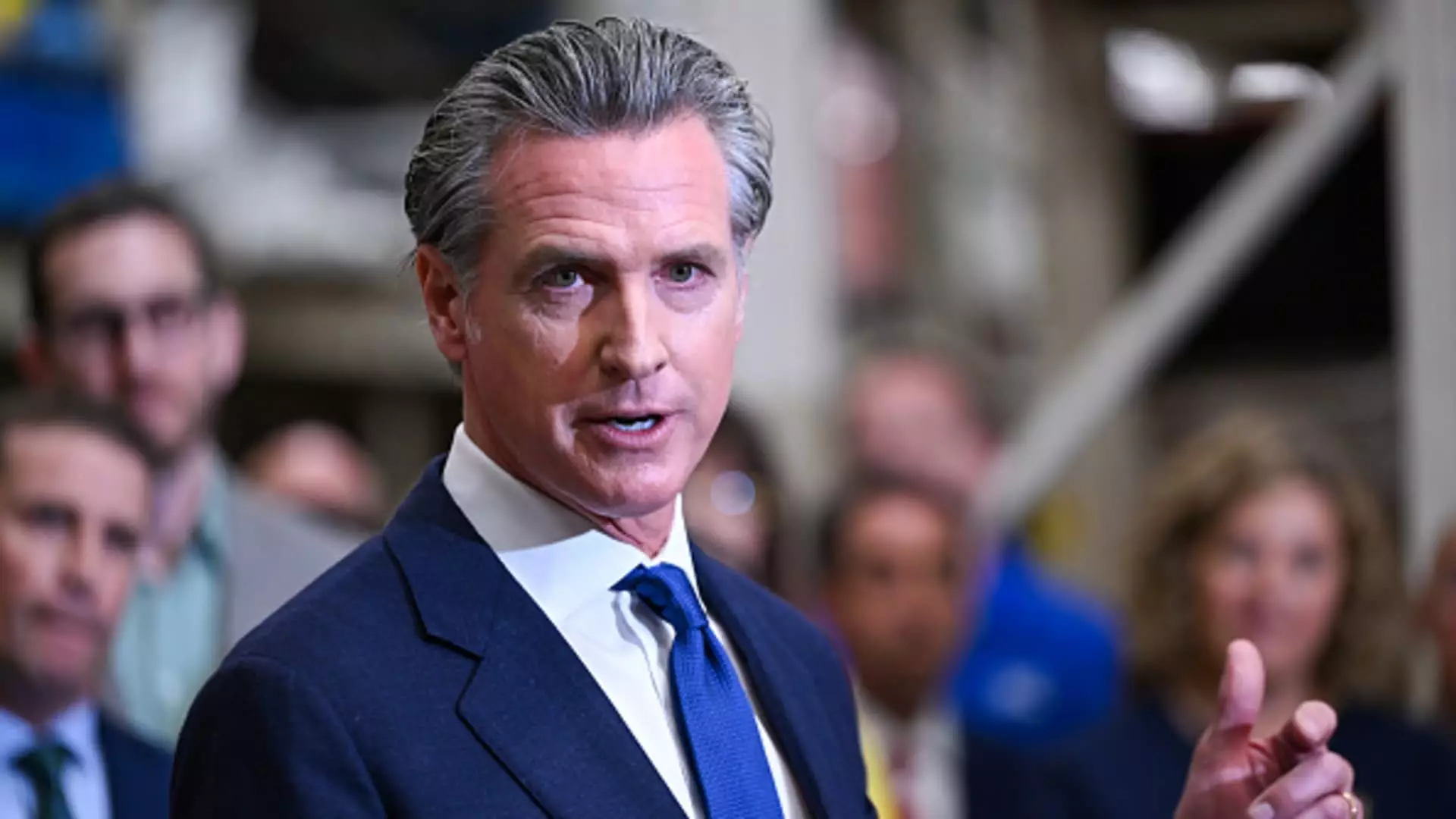California, a demographic and economic juggernaut of the United States, finds itself at a crossroads as Governor Gavin Newsom initiates a special legislative session aimed at fortifying the state against perceived threats from the incoming Trump administration. With this session commencing Monday, the stakes are high, and the political landscape is charged as Newsom collaborates with lawmakers to establish a litigation fund of up to $25 million. This initiative is a proactive measure intended to arm California’s legal resources against policy proposals that could imperil the state’s progressive values and initiatives, particularly in the realms of reproductive rights and environmental protection.
The proposed fund, earmarked for the California Department of Justice and associated state agencies, reflects Newsom’s commitment to legal defenses in anticipation of combative policy shifts likely to arise under President Trump. By allocating substantial resources towards legal battles, California prepares not only to challenge federal policies that threaten its legislative priorities but also to uphold the rights and freedoms of its residents. The creation of this fund underscores a further divide between progressive states and the federal government, suggesting potential confrontations that may arise in the coming years.
In a statement issued by the governor’s office, it was emphasized that the planned fund would serve as a crucial bulwark against policies that may be detrimental to the state’s socioeconomic fabric. Furthermore, the initiative emphasizes a broader strategy of resistance, setting the stage for weeks of hearings as the administration endeavors to enact and pass legislation before the inauguration on January 20. This timeline indicates an urgency to lay legal groundwork quickly to mitigate potential damage from future federal actions.
Anticipating a Trump-Fueled Political War
The setup for this special session is laden with tension, as seen in Karoline Leavitt’s remarks on behalf of the Trump-Vance transition team. Her assertion that Californians’ support for Trump has reached historic levels hints at a simmering conflict that could characterize the relationship between California and the incoming federal administration. Leavitt’s comments invoke a narrative that frames state policy as excessively liberal, arguing that high taxes and robust immigration policies have driven discontent among California residents. This rhetoric frames the upcoming legislative session not just as a period of legal preparation but as part of a broader narrative in which California’s progressive stance is challenged at the federal level.
Newsom’s declaration post-election that California must ready itself for action exemplifies the urgency felt by many state officials. His framing of the situation indicates an awareness of California’s significant size and influence, which places additional responsibility on its leaders to advocate resiliently for state interests. The context is one where Newsom feels a moral imperative to take decisive steps to shield the state’s residents from adverse federal policies that could threaten both their rights and the quality of life.
Trump’s previous term serves as a crucial template for understanding the potential confrontations that might occur between the state and federal government. The staggering 122 lawsuits initiated by California’s Department of Justice between 2017 and 2021 reveals a complex and often adversarial relationship. During this period, legal battles resulted in meaningful financial recoveries and protectiveness over federal funds critical for state welfare. Newsom’s move to potentially reactivate these legal strategies signals a commitment to continuing this battle against what he perceives as federal intrusion into state autonomy.
Moreover, recent policy proposals like the anticipated continuation of the Zero Emission Vehicle rebate program serve as battlegrounds over state-level environmental initiatives, especially in light of emerging controversies involving major corporations like Tesla. The reactions from industry leaders, including Elon Musk, illuminate the complexities of navigating economic interests against a backdrop of regulatory challenges posed by federal policies.
Reflections on California’s Political Climate
This legislative session is not occurring in isolation but is reflective of broader trends within California’s political landscape. Recent election outcomes have seen conservative district attorneys ascend to office, suggesting a shifting dynamic in public sentiments. Proposition outcomes, such as increased penalties for certain crimes coupled with unsuccessful attempts to raise the minimum wage, indicate that economic concerns may be overshadowing traditional progressive issues.
Polling data from the Public Policy Institute of California shows a clear message from voters prioritizing economic stability over social progressiveness, a development that could influence legislative approaches in both the short and long term. As California navigates these choppy political waters, the outcome of Newsom’s special session—and the various legal battles that may ensue—holds significant implications not only for the future of California but also for the broader dialogue on federalism and state rights in America.
With the looming threats of federal overreach, California’s legislative landscape is poised for a fierce and critical examination of its values and policies, as leaders mobilize legal resources to defend both the state’s autonomy and the principles it champions.


Leave a Reply